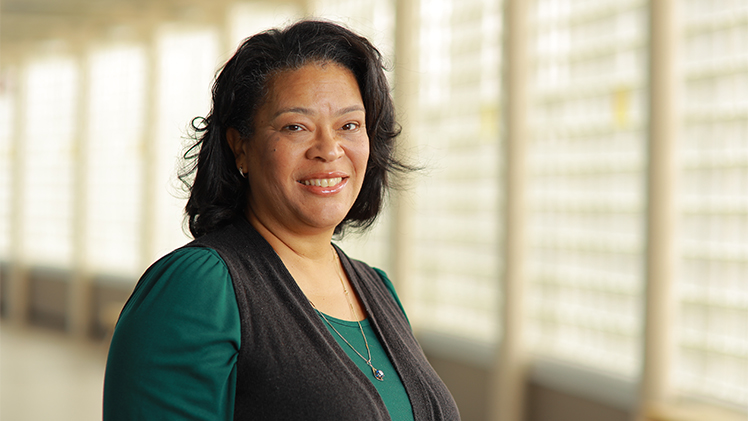For Black high school students who wish to pursue a career in engineering, more often than not the suggested path forward is majoring in engineering technology.
“The typical engineering curriculum includes analysis, design and emphasizes theory and advanced concepts, including innovation and the development of new technology. The engineering technology degree is more focused on the hands-on application and implementation of engineering principles and theory,” said Dr. Lesley Berhan, associate professor in the UToledo Department of Mechanical, Industrial and Manufacturing Engineering, and associate dean for student success and strategic initiatives in the College of Engineering.

Berhan
“There is some overlap between engineering and engineering technology; however, there are certain jobs and positions that specifically require an engineering degree.”
Engineering technology majors are also likely to encounter more career drawbacks compared to engineering majors, she said.
“There are also employers who are unfamiliar with the four-year engineering technology curriculum and do not consider applicants with engineering technology degrees for positions that they might actually be well-suited for.”
Berhan, who leads several diversity initiatives aimed at encouraging more students to pursue engineering careers, such as the annual Introduce a Girl to Engineering Day, noted that engineering technology programs nationwide generally have a higher percentage of underrepresented students than engineering majors do. She said she has been passionate about understanding why this is the case for years.
And now she’s received funding to begin that research.
The National Science Foundation recently awarded $707,521 to The University of Toledo for collaborative research into better understanding the reasons Black students interested in pursuing a career in the engineering field decide to major in either engineering technology or engineering, and the outcomes of their decision.
The research is being led by a trio of researchers at The University of Toledo, with Berhan as the principal investigator, and Dr. Revathy Kumar, professor of educational psychology in the Judith Herb College of Education, and Dr. Monita Mungo, an associate professor of sociology in the College of Arts and Letters, as co-principal investigators.
“I’m thrilled that this important research was funded,” Berhan said. “As an engineer, it’s exciting for me to do this kind of research and partner with my colleagues: Dr. Revathy Kumar in educational psychology and Dr. Monita Mungo in sociology.”
Contrary to public perception, the decision to major in engineering technology versus engineering is often much more nuanced than choosing a major that is more hands-on and less mathematically intensive, Berhan said.
“This is especially true for African American students,” she said. “Issues of academic preparation and access to advanced math and science coursework in high school, the ability to transfer from a two-year to a four-year institution and accessibility issues such as being able to enroll in part-time, evening or online classes also factor heavily into the decision.
“We will look at these issues through the frameworks of sociology and educational psychology theories to better understand the difference in demographics in engineering technology and engineering.”
The project will also investigate the barriers, limitations and biases that engineering technology graduates often encounter in the industry.
“This research will be critical in informing whether these students’ choice of major is aligned with their personal and professional goals,” Berhan said, “and help ensure that engineering technology graduates are counted and recognized as valued members of the engineering community.”
The grant began June 1 and runs through May 31, 2026.
“The importance of this research to The University of Toledo and to other universities is substantial,” she said, “as it will help ensure equity and inclusivity in the field of engineering at the collegiate and professional levels.”